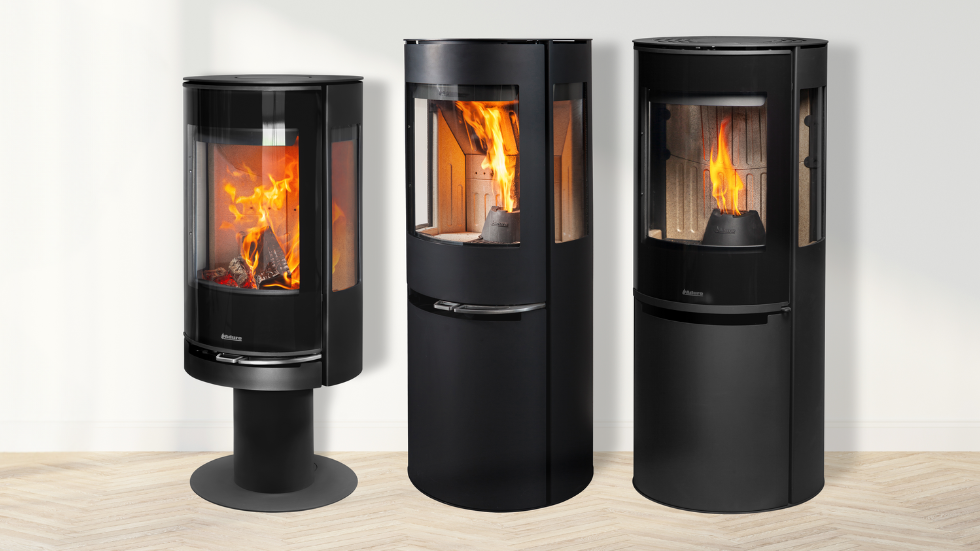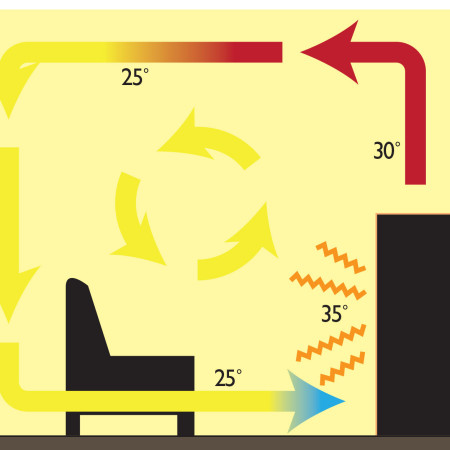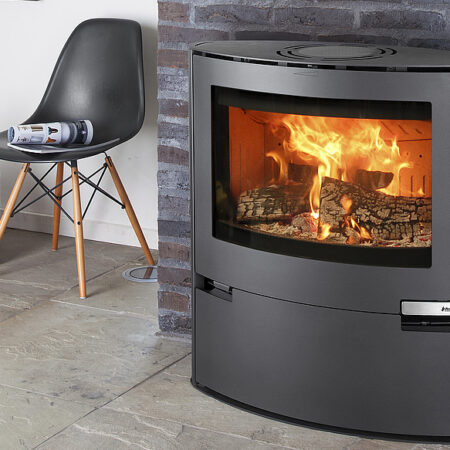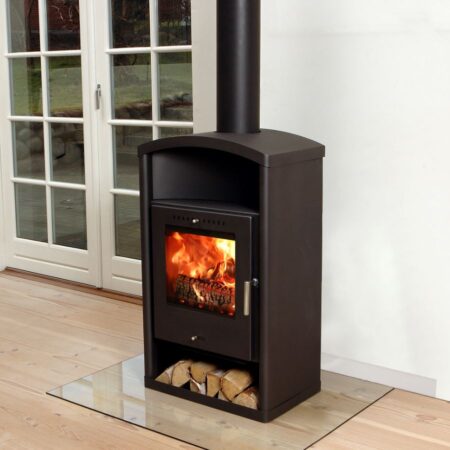Choose the right heat source
Pros
Many associate the flame in a wood burning stove with the real thing. With a wood burning stove, you can create a cosy atmosphere in the room and get lost in the dancing flames.
In addition, the wood burning stove does not make noise. The only thing you hear from the wood burning stove is the sound of the crackling fire. Today, most modern stoves have convection heat, where cold air is sucked in at the bottom of the stove and hot air is sent out from the top of the stove and circulated around the room. This way, the heat is evenly distributed in the room – without any noise from a fan.
There might also be money to save by choosing a wood burning stove, as it is typically cheaper to acquire than a pellet stove, and regular firewood is often cheaper than wood pellets.
Cons
As a wood burning stove is not a technological product, it is harder to control the temperature, and you cannot set a desired room temperature as with a pellet stove.
In a wood burning stove, you must continuously make sure to put on firewood, control the air supply and clean the combustion chamber from ash. However, by choosing a wood burning stove with automatic regulation of the air supply, you can make the process easier and ensure a cleaner combustion.
Pros and cons of the pellet stove
Pros
A pellet stove can turn on and off automatically based on your temperature settings, you can make weekly programs, and you can regulate the room temperature up and down exactly as you wish. If the pellet stove has integrated Wi-Fi control, it is also possible to control the stove from your phone, no matter where you are. In addition, you can fire overnight so it’s cosy when you wake up and heat the house when you’re away.
At the same time, a pellet stove requires less work than a wood burning stove. When you have filled in the pellets, you can sit back and enjoy the heat – without having to handle firewood. With a pellet stove, the process is automatically controlled. This means less smoke, less waste and less ash – which means less cleaning.
Cons
With a pellet stove, you do not get the same beautiful flames and cosy crackle that you get in a wood burning stove, so it does not contribute with the same level of cosiness. In addition, a pellet stove makes more noise due to the fan that distributes the heat. Finally, a pellet stove requires ongoing service from a professional.
Pros and cons of the hybrid stove
Pros
In the hybrid stove, you get the best from the wood burning stove and the pellet stove combined in one solution. With a hybrid stove, you get the cosiness from firewood and the flexibility and comfort from pellets. The stove can be used as a classic wood burning stove with beautiful flames, noiseless use and the cosiness from firewood. You can always get heat, even if the power goes out. In addition, the pellet function allows you to control the stove from your phone, set a desired room temperature, make time programs and much more. You can burn overnight and heat the house when you are not home. Just like on a wood stove, the heat distribution happens via convection, which means that a hybrid stove is quiet compared to a pellet stove.
Cons
There is a bit of noise from the augers when the hybrid stove burns on pellets. However, the stove is quiet compared to a pellet stove, in which the heat is distributed with a fan. A hybrid stove requires more cleaning and maintenance than a pellet stove, as a light cleaning of the combustion chamber should be done daily. Finally, a hybrid oven requires ongoing service from a professional.
Read more about the hybrid stove here.




